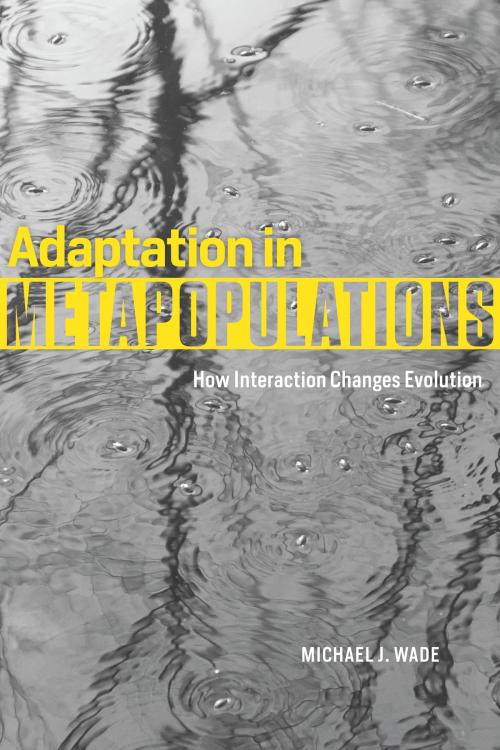Adaptation in Metapopulations
How Interaction Changes Evolution
Nonfiction, Science & Nature, Science, Biological Sciences, Microbiology, Evolution| Author: | Michael J. Wade | ISBN: | 9780226129877 |
| Publisher: | University of Chicago Press | Publication: | May 3, 2016 |
| Imprint: | University of Chicago Press | Language: | English |
| Author: | Michael J. Wade |
| ISBN: | 9780226129877 |
| Publisher: | University of Chicago Press |
| Publication: | May 3, 2016 |
| Imprint: | University of Chicago Press |
| Language: | English |
All organisms live in clusters, but such fractured local populations, or demes, nonetheless maintain connectivity with one another by some amount of gene flow between them. Most such metapopulations occur naturally, like clusters of amphibians in vernal ponds or baboon troops spread across the African veldt. Others have been created as human activities fragment natural landscapes, as in stands of trees separated by roads. As landscape change has accelerated, understanding how these metapopulations function—and specifically how they adapt—has become crucial to ecology and to our very understanding of evolution itself.
With Adaptation in Metapopulations, Michael J. Wade explores a key component of this new understanding of evolution: interaction. Synthesizing decades of work in the lab and in the field in a book both empirically grounded and underpinned by a strong conceptual framework, Wade looks at the role of interaction across scales from gene selection to selection at the level of individuals, kin, and groups. In so doing, he integrates molecular and organismal biology to reveal the true complexities of evolutionary dynamics from genes to metapopulations.
All organisms live in clusters, but such fractured local populations, or demes, nonetheless maintain connectivity with one another by some amount of gene flow between them. Most such metapopulations occur naturally, like clusters of amphibians in vernal ponds or baboon troops spread across the African veldt. Others have been created as human activities fragment natural landscapes, as in stands of trees separated by roads. As landscape change has accelerated, understanding how these metapopulations function—and specifically how they adapt—has become crucial to ecology and to our very understanding of evolution itself.
With Adaptation in Metapopulations, Michael J. Wade explores a key component of this new understanding of evolution: interaction. Synthesizing decades of work in the lab and in the field in a book both empirically grounded and underpinned by a strong conceptual framework, Wade looks at the role of interaction across scales from gene selection to selection at the level of individuals, kin, and groups. In so doing, he integrates molecular and organismal biology to reveal the true complexities of evolutionary dynamics from genes to metapopulations.















